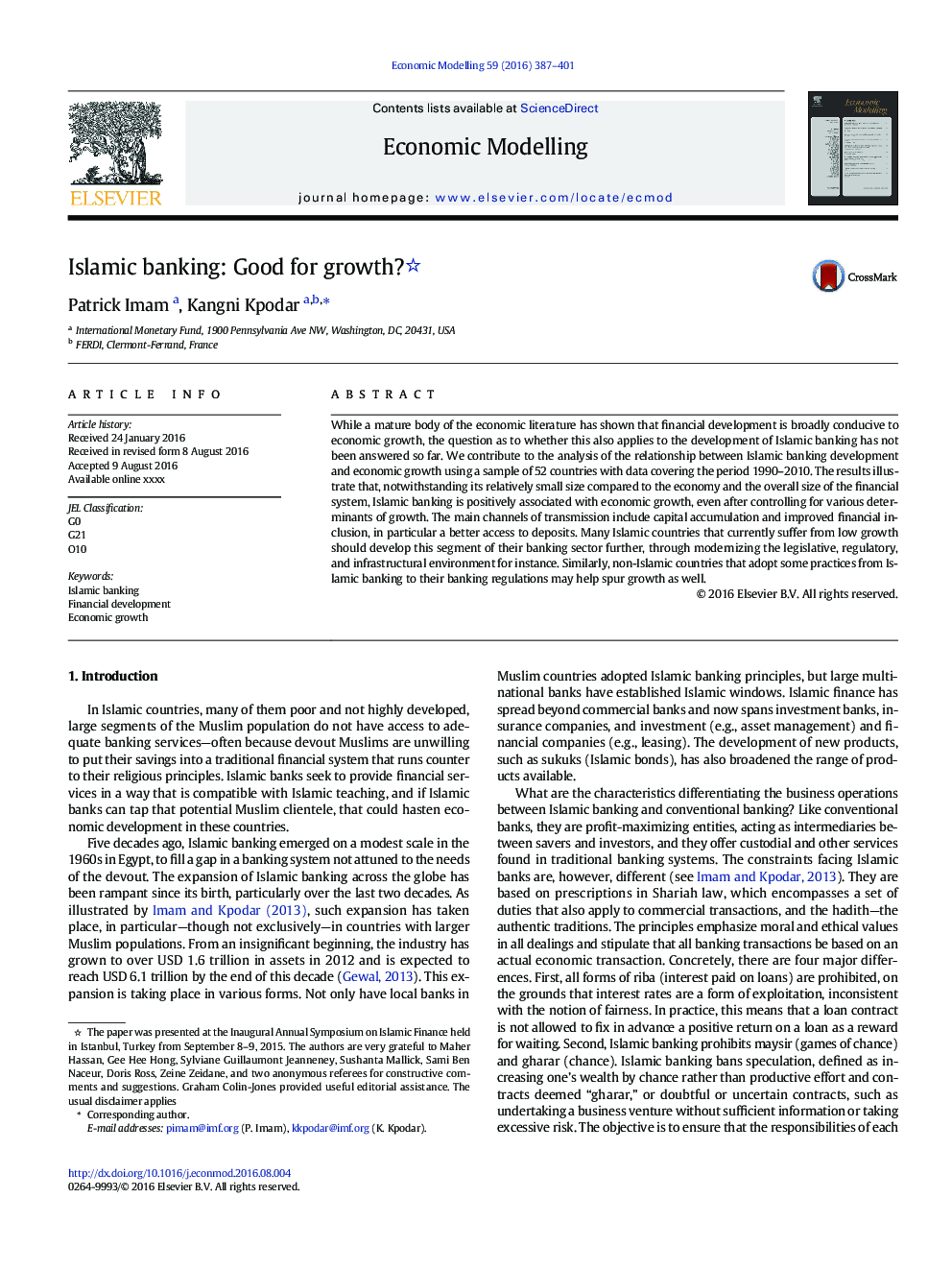| Article ID | Journal | Published Year | Pages | File Type |
|---|---|---|---|---|
| 5053303 | Economic Modelling | 2016 | 15 Pages |
Abstract
While a mature body of the economic literature has shown that financial development is broadly conducive to economic growth, the question as to whether this also applies to the development of Islamic banking has not been answered so far. We contribute to the analysis of the relationship between Islamic banking development and economic growth using a sample of 52 countries with data covering the period 1990-2010. The results illustrate that, notwithstanding its relatively small size compared to the economy and the overall size of the financial system, Islamic banking is positively associated with economic growth, even after controlling for various determinants of growth. The main channels of transmission include capital accumulation and improved financial inclusion, in particular a better access to deposits. Many Islamic countries that currently suffer from low growth should develop this segment of their banking sector further, through modernizing the legislative, regulatory, and infrastructural environment for instance. Similarly, non-Islamic countries that adopt some practices from Islamic banking to their banking regulations may help spur growth as well.
Related Topics
Social Sciences and Humanities
Economics, Econometrics and Finance
Economics and Econometrics
Authors
Patrick Imam, Kangni Kpodar,
